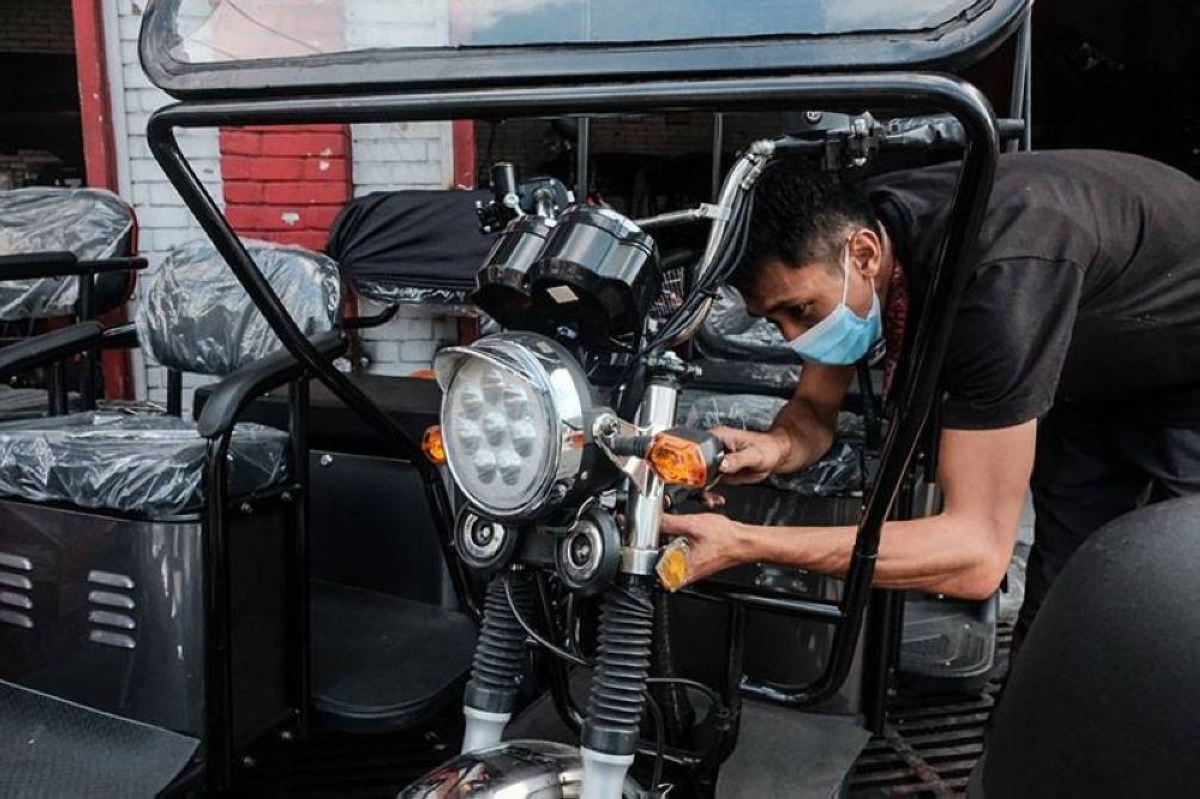A Philippine-based international think tank has recently urged lawmakers to take immediate action in order to facilitate the ownership of electric vehicles (EVs) for Filipinos. In a bid to promote sustainable living and reduce emissions, the Stratbase ADR Institute President, Prof. Dindo Manhit, is advocating for Congress to amend certain provisions of the Electric Vehicle Industry Development Act (Evida), also known as Republic Act (RA) 11697, by eliminating importation barriers to electric vehicles.
The proposed amendments to the law align with the Philippines’ commitment to reducing emissions under the Paris Agreement and reducing the country’s reliance on fossil fuels. Stratbase fully supports the efforts of Albay 2nd District Rep. Joey Salceda, who has filed House Bill (HB) 9573. This bill aims to provide tax breaks for two-wheeled EVs.
Stratbase endorses the expansion of the definition of EVs under HB 9573 to include two-, three-, and four-wheeled vehicles with at least one electric drive for vehicle propulsion. This includes Battery Electric Vehicles (BEVs), hybrid electric vehicles, light electric vehicles, and plug-in hybrid EVs. The think tank emphasizes that two-wheeled electric vehicles are the most affordable option. Given the worsening traffic situation and the rising fuel prices, more Filipinos can now consider purchasing their own environmentally sustainable two-wheeled electric vehicles that produce zero emissions.
In 2023, the implementation of Evida resulted in a sixfold increase in EV sales compared to the previous year. This growth demonstrates that more Filipinos are willing to prioritize the environment while addressing their transportation needs. However, the current provisions of Evida limit the incentives for EVs to four-wheeled vehicles, leaving out the majority of EVs, which are two-wheeled. This situation is seen as discriminatory and anti-poor, as it only benefits those who can afford the more expensive four-wheeled EVs.
To rectify this issue, legislative amendments are necessary. Stratbase urges lawmakers to be open-minded and proactive in order to align with the global urgency to mitigate the climate crisis. The think tank emphasizes the need for policy reforms that provide more Filipinos with access to sustainable and affordable means of transportation, while also addressing traffic congestion and air pollution. By doing so, Filipinos can enhance their productivity and quality of life.
Stakeholders are also pushing for amendments to Executive Order No. 12 Series of 2022, which would allow two-wheeled EVs to benefit from tax breaks. Currently, only kick scooters, self-balancing cycles, bicycles, and pocket motorcycles with auxiliary motors not exceeding 250w and with a maximum speed of 25 kilometers per hour are eligible for zero import duties. Electric motorcycles, on the other hand, are subject to a 30 percent tariff rate.
In conclusion, the call to make electric vehicles more accessible to Filipinos is gaining momentum. Legislative amendments to Evida and Executive Order No. 12 will play a crucial role in promoting sustainable transportation options and reducing emissions. By providing tax breaks and expanding the definition of EVs to include two-wheeled vehicles, the Philippines can encourage more Filipinos to embrace electric mobility, contributing to a cleaner and greener future for all.







